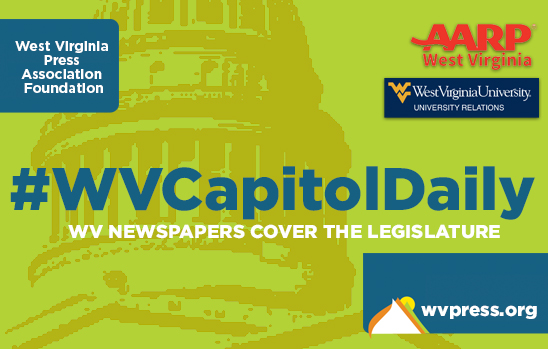By Erika Diehl, West Virginia Press Association
CHARLESTON, W.Va. — The West Virginia Senate Committee of Health and Human Resources this week heard extensive discussion on a bill that members have been reviewing for several meetings now.
The initial aim of SB 334 was to establish license application process for harm reduction programs. Discussion morphed into legislation focusing on needle exchange.
“When done properly (these programs) are a valuable component of the community, but there are bad actors out there,” Sen. Michael Maroney, R-Marshall, said during Tuesday’s meeting.
Maroney, who is a physician, added, “The goal of this legislation is to regulate. Keep the programs in place that are doing a good job … but try to get rid of some of these negative effects that are plaguing some of our communities.”
Needle exchange programs are community-based programs that give access to sterile needles and syringes. The facilities promote safe disposal and provide a link to other related services. People utilizing these programs have access to substance use disorder treatment programs, screening care, treatment for hepatitis and HIV education and prevention.
Amendments were offered in the form of a committee substitute.
One of the changes is the addition of the word “goal” regarding the implementation of 1:1 needle exchange. Some senators feel this is still too restrictive for programs that are currently running and having success.
The bill calls for the ability to track each needle uniquely to the exchange program, rather than to a specific person. Also, needles cannot be distributed by secondary exchange or proxy, meaning later given to a third party who is not present at the site.
Sen. Tom Takubo, R-Kanawha, spoke in support of the bill, noting a concern for needle litter. He said, “There is a balance and some accountability to the people we serve. Not just those that are addicted to substances but also to those that aren’t.”
Testimony heard in previous committee meetings on this bill were not in favor of the restrictions. There is also concern that the restrictions are not in line with CDC best practices for harm reduction programs, which include open access and secondary exchange.
“We’re dealing with folks who suffer from the disease of addiction,” Sen. Richard Lindsay, D-Kanawha, said, expressing his reservations in opposition. “The least we can do is make sure they’re not spreading other harmful diseases within the community.”
“We really don’t want a flood wall, but we know that we have to have a flood wall,” Sen. Robert Plymale, D-Wayne, said. “We don’t really want to have a harm reduction or a needle exchange program, but we’ve had such breakouts in HIV and hepatitis that are so costly. … This bill still puts so many shackles on your county health departments that it will be difficult to run.”
Sen. Takubo’s response to the opposition focused on the fact that these restrictions have never been put into play before. His hope is “within a year or two, data will come out from this that maybe shines some light on areas that could help needle programs all across the country.”
“We right now have two of the four most HIV outbreaks of concern in the United States of America: Huntington and Charleston. Charleston has operated a syringe service program on a 1:1 mechanism. It has not worked,” Sen. Ron Stollings, D-Boone, said.
Having taken a Hippocratic oath to do no harm, Stollings said it’s his obligation to vote down this bill. “What we’re about to do is fly right in the face of sound policy… and we’re gonna pay for it. We have the highest overdose fatality rate in the United States for a decade. We need robust harm reduction.”
Once discussion closed, the bill passed with a show of hands 7 to 3.
They moved on to review SB 390, which clarifies existing legislation that has already been implemented. It reorganizes the Health Care Authority under DHHR and defines responsibilities of the all-payer claims database. With minimal discussion, the bill was passed and will be reported to the full senate.






